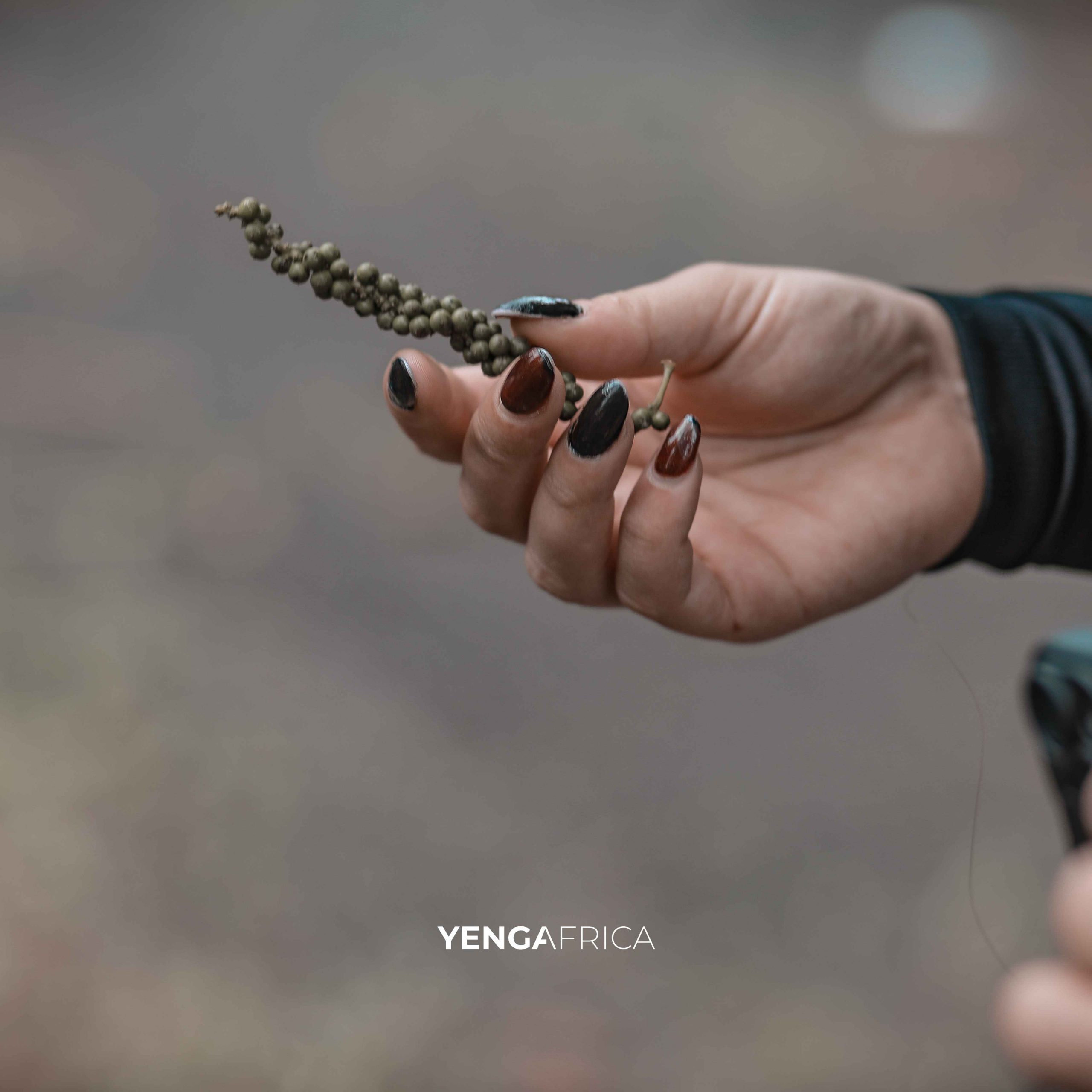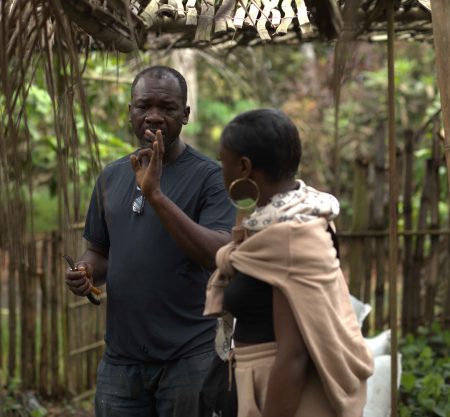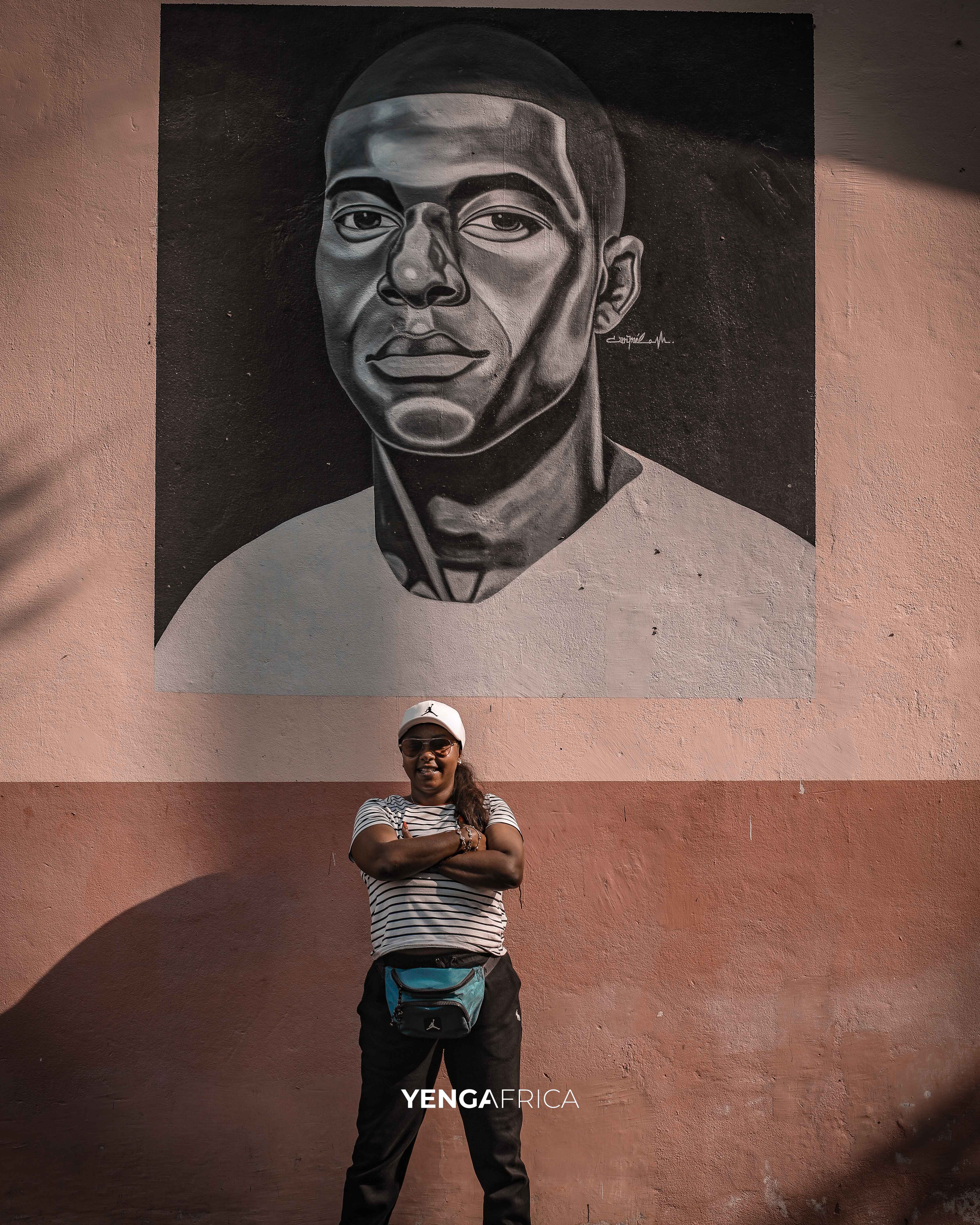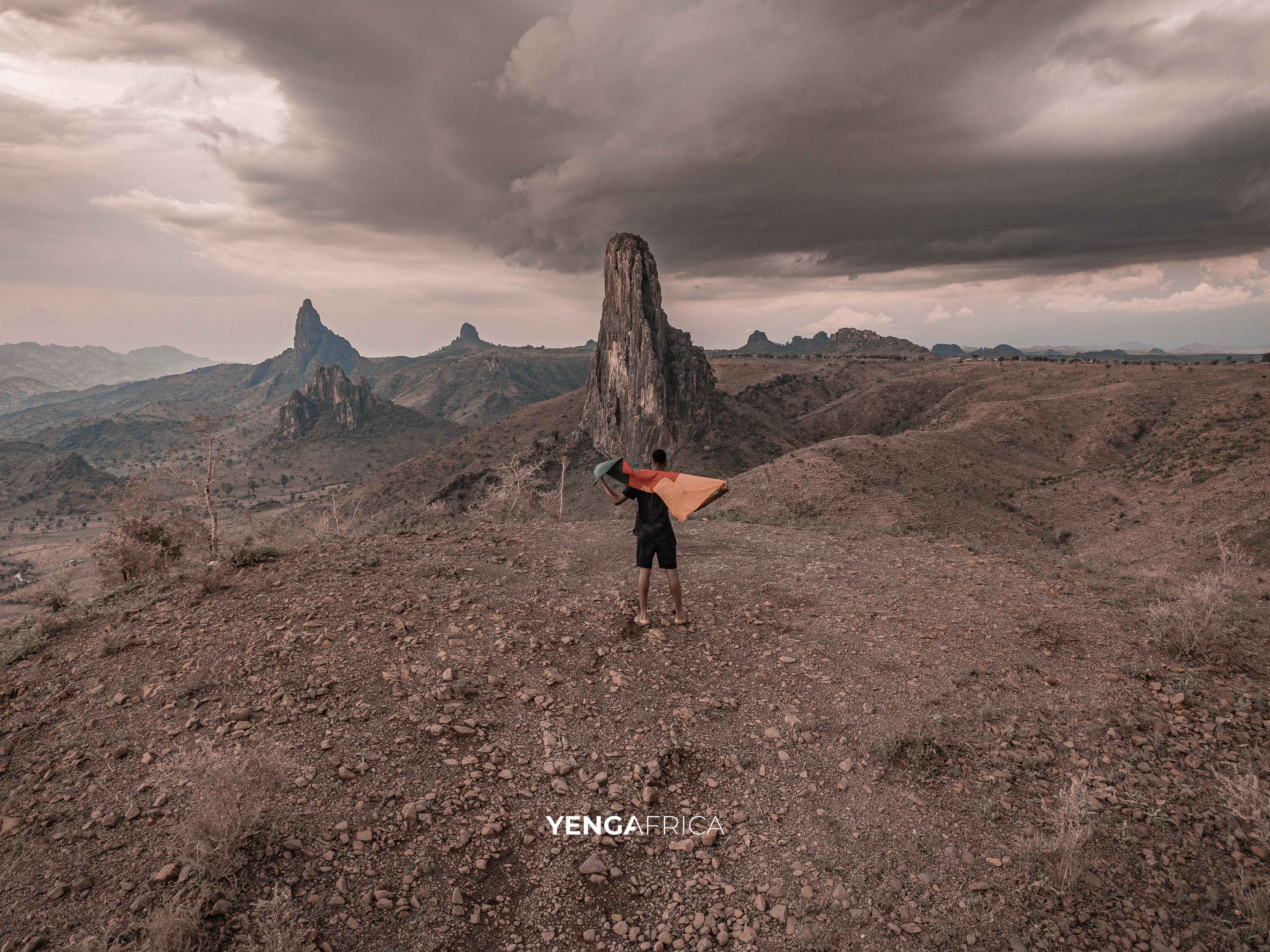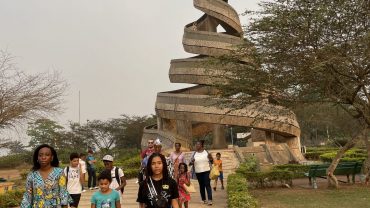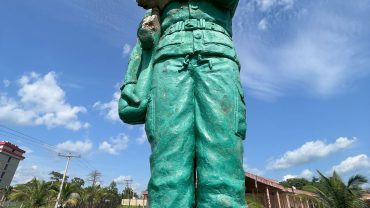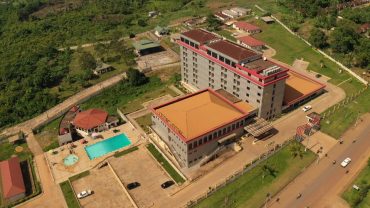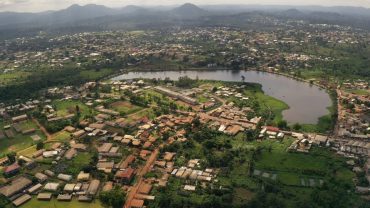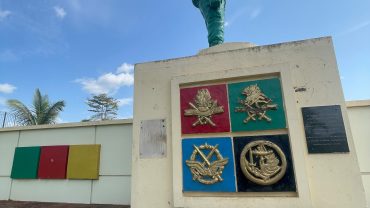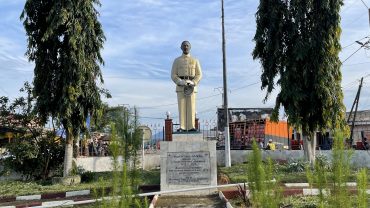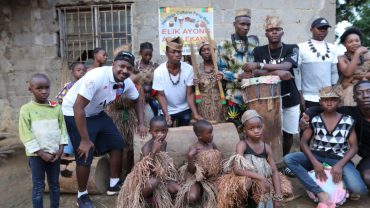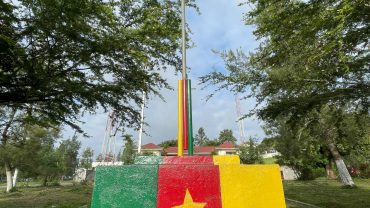The Moungo department in the littoral region of Cameroon, known for its fertile volcanic soils and tropical landscapes, hides one of the country’s most fascinating destinations: the Penja pepper plantation. Here grows the legendary Poivre de Penja, the first African spice to earn a Protected Geographical Indication (PGI) — a mark of global recognition for quality and origin.
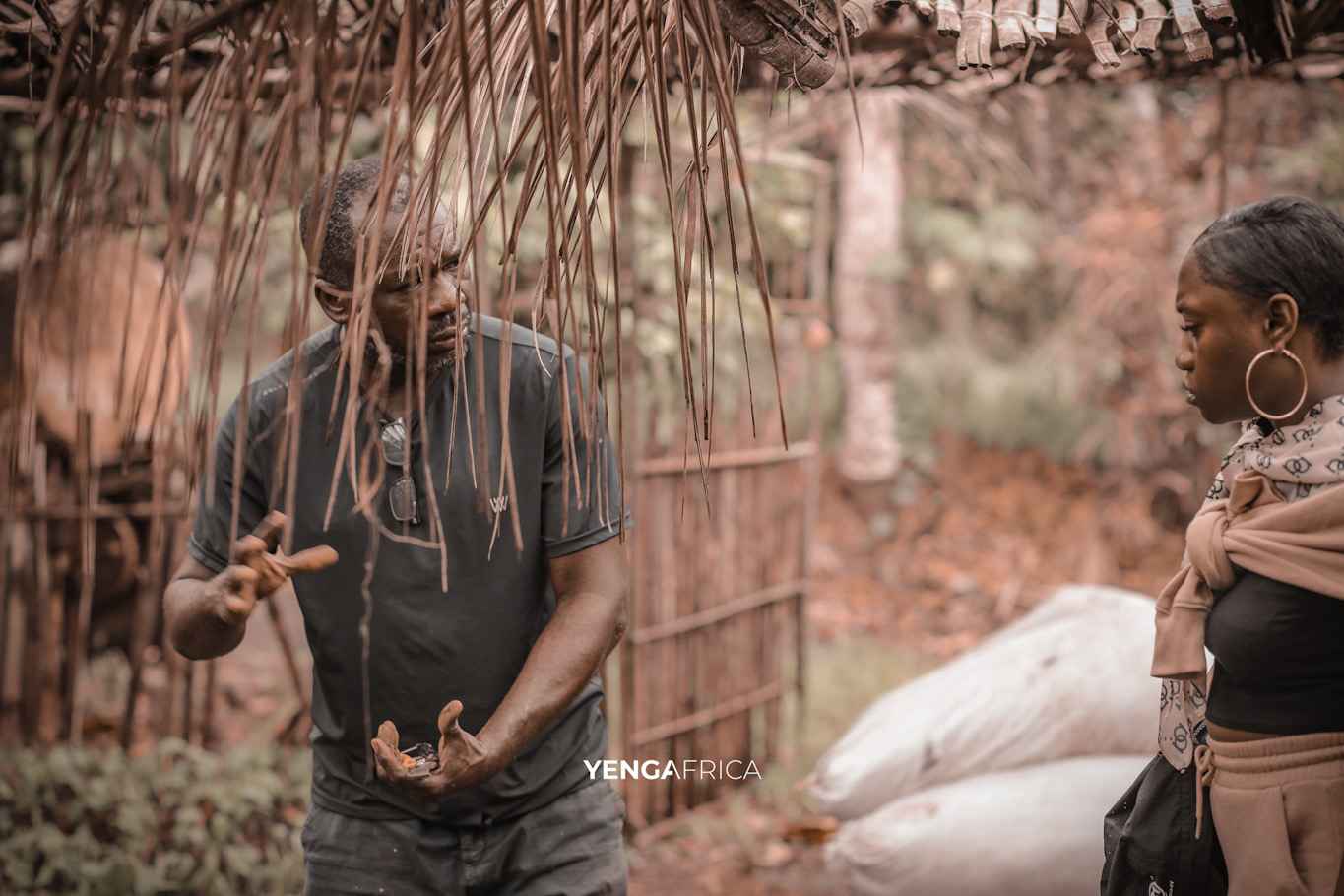
Why Visit the Penja Pepper Plantation?
This is not just another stop on a Douala day trip. The Penja Valley, stretching between Njombé and Penja, offers one of Cameroon’s most fascinating agricultural experiences. Here, farmers cultivate black, white, red, and green peppercorns, all shaped by the valley’s volcanic soil, naturally rich in nutrients.
As you walk through the Penja pepper plantations, you’ll see how local farmers use traditional techniques to transform this fertile land into one of the world’s finest spice-growing regions. The result is the famous Poivre de Penja — a pepper recognized by chefs across the globe as one of the best spices in the world, thanks to its purity, aroma, and distinctive flavor.
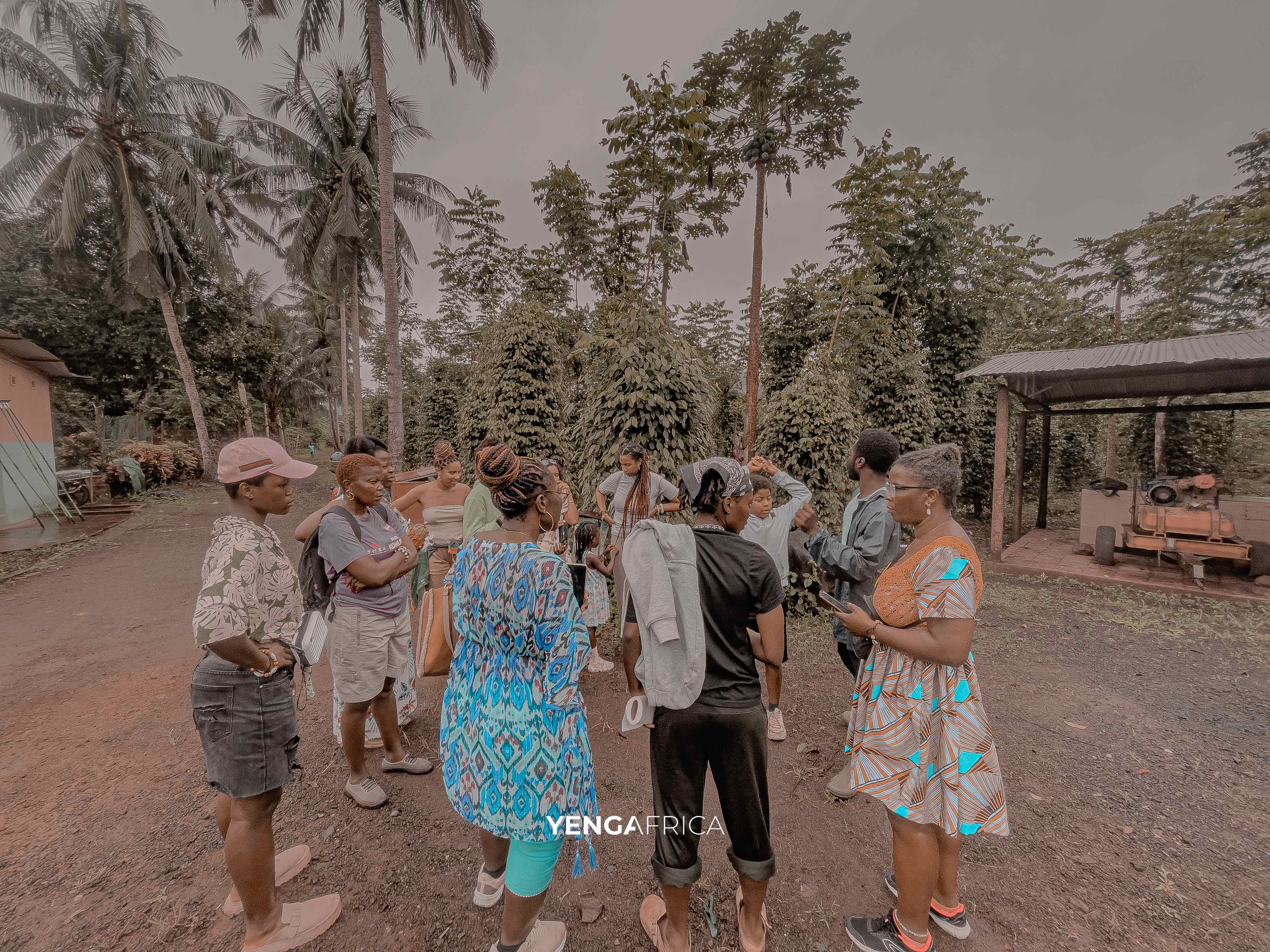
What to Expect on the Visit ?
- Plantation Walks – Stroll among pepper vines supported by tall trees and learn how they grow, harvest, and dry each batch.
- The PGI Story – Understand why “Poivre de Penja” became a label of authenticity and traceability in African spice production.
- Tasting Experience – Smell and taste fresh peppercorns to discover the difference between Poivre blanc de Penja and standard varieties.
- Cultural Encounter – Meet local farmers and learn how this crop transformed their community into a symbol of Cameroon’s agricultural pride.
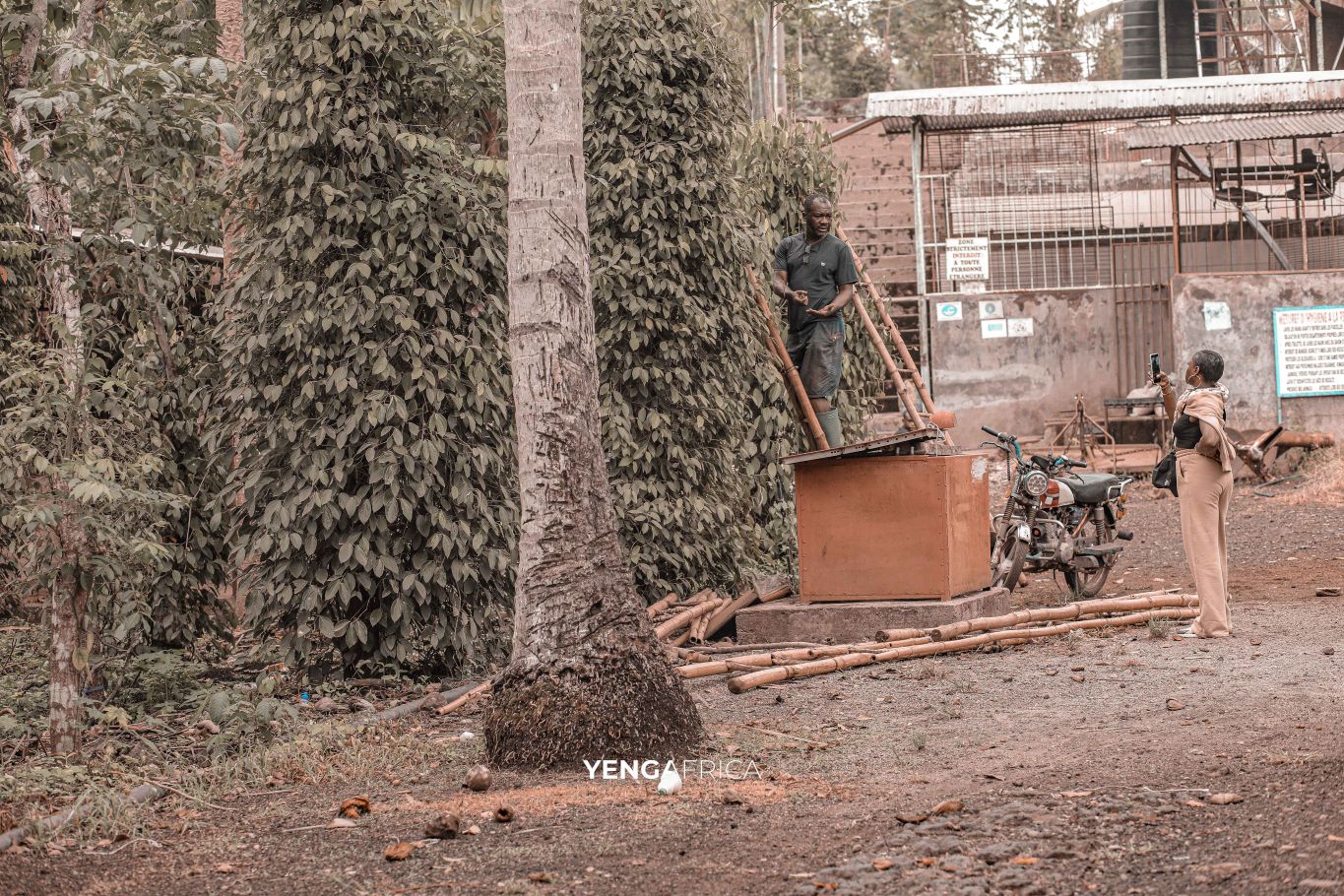
How to Get There ?
From Douala, the drive to Njombé-Penja takes about 2 hours via the N5 highway. The road is not always great, little pot holes on the road, and if departing from Douala, traffic can slow you down in Bonaberi. The best tip is to leave Douala by 6am to avoid traffic.
- By Car:
Take the N5 through the Moungo region, passing Loum and Njombé before reaching Penja town.
If you’re on a road trip toward the West Region, it’s best to book your Penja Pepper Plantation visit in advance. A local guide can meet you at the main road and lead you directly to the plantation for your tour.
After your visit, you can continue your road trip toward the West or stop at nearby attractions such as the Ekom Nkam Waterfalls or the Mouankeu Waterfall in Bafang, Ngwa waterfalls etc..
- By Bus or Shared Taxi:
Regular public transport connects Douala and Nkongsamba, but travel by bus can be slow and unpredictable.
Local departures are not always reliable, so it’s best to use your own vehicle or rent a car for convenience and safety. - By private Organized Tour:
The easiest and most comfortable option is to book a Douala day trip to the Penja Pepper Plantation.
This guided tour includes transportation, a professional guide, and the full plantation visit with a visit of Ekom Nkam Waterfalls, Cameroon’s tallest and most iconic waterfall—just a short drive from Penja
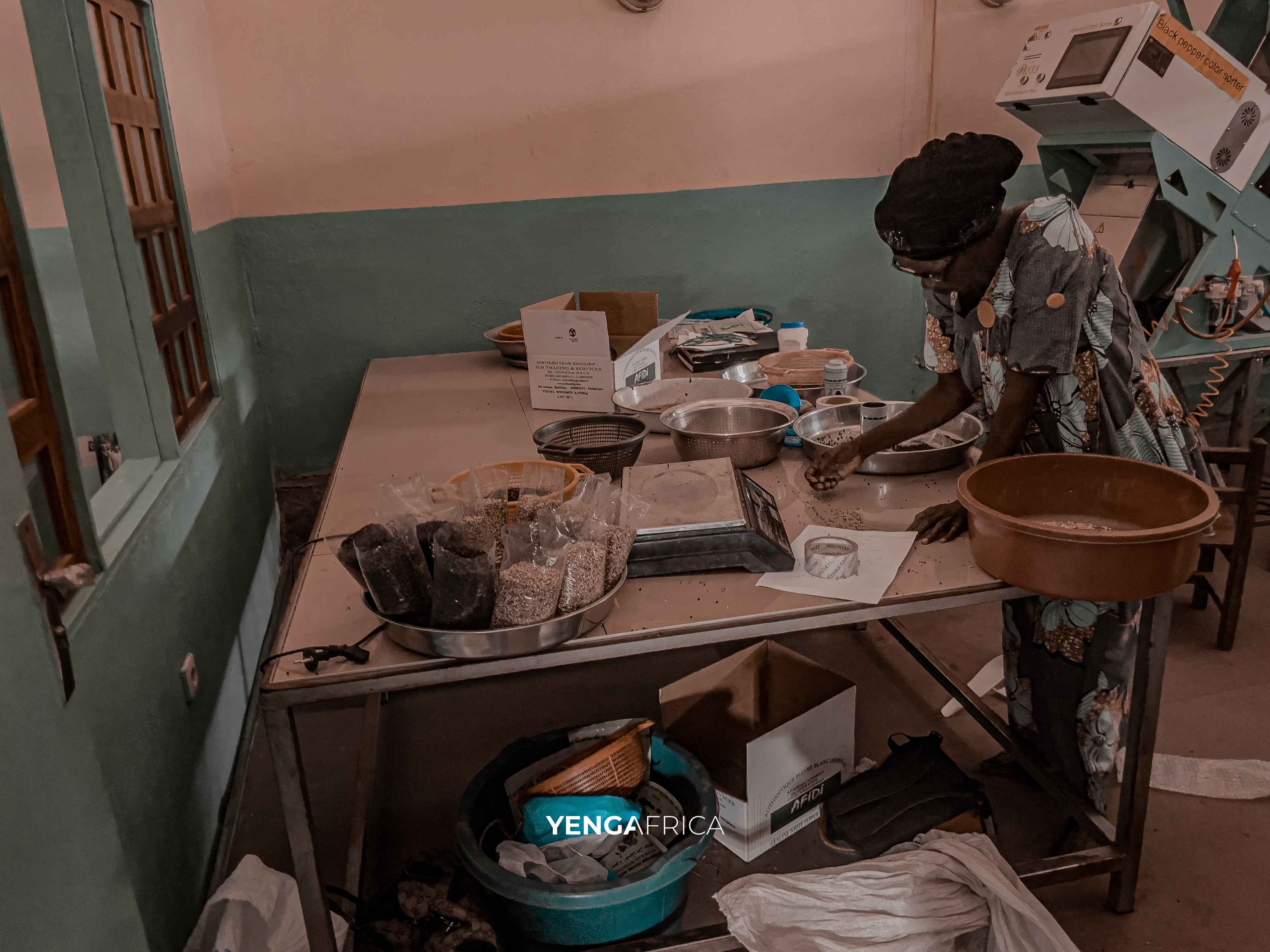
Best Time to Visit
You can visit the plantation at any time of the year, but the best period is between December and April. During these months, the weather is dry, making travel easier, and the harvest season is in full swing. This is when you’ll have the highest chance of witnessing every stage of production — from pepper picking to washing and drying.
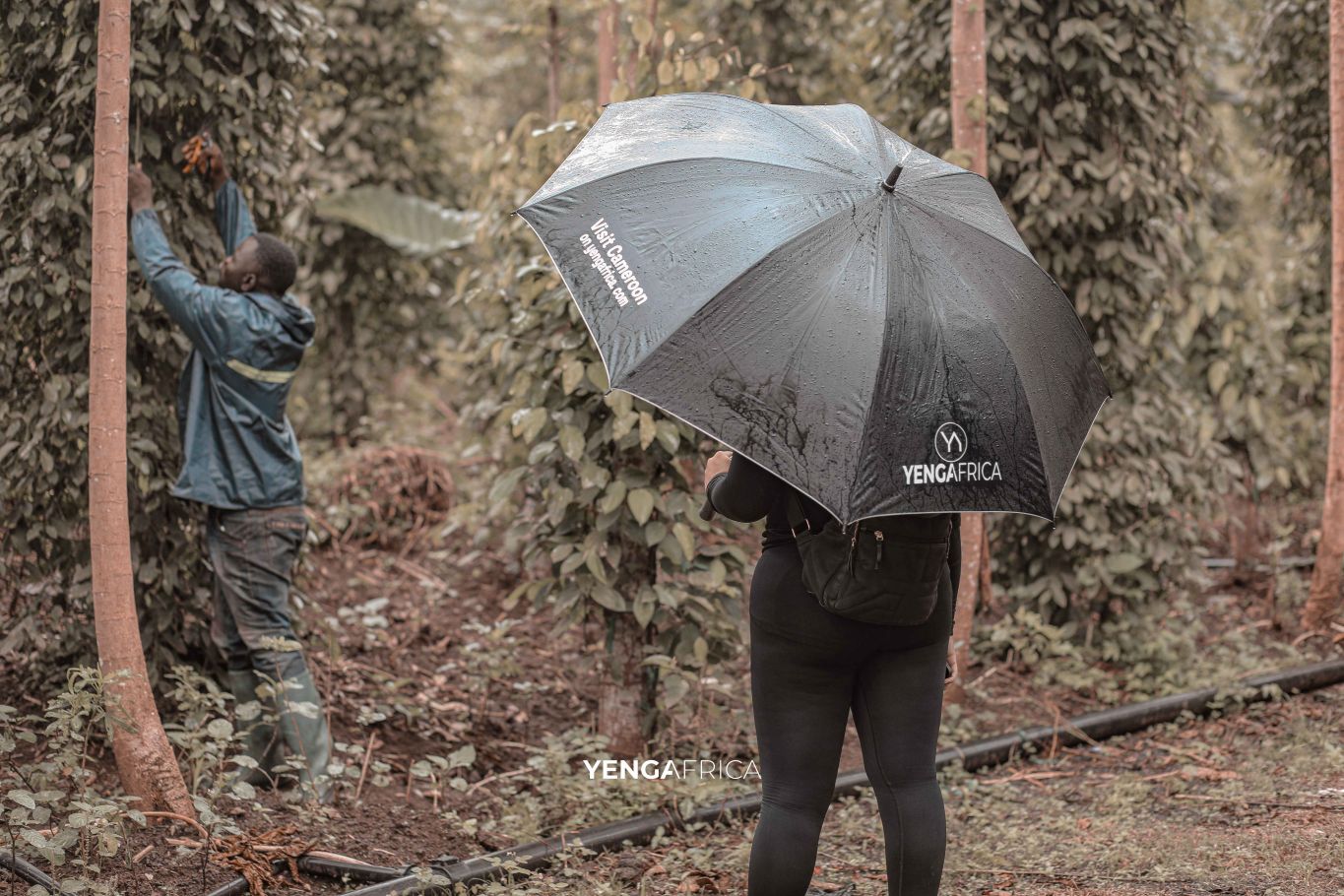
The production process follows strict and meticulous standards, ensuring the quality that made Poivre de Penja famous worldwide. If you want to confirm whether all workshops will be open during your visit, please contact us in advance for more details. Even when some workshops are closed, rest assured — the experience remains deeply enriching.
- Morning visits are cooler and perfect for photography.
- During the rainy season (June–October), the visit is still informative. You’ll learn as much about the pepper-making process, though some workshops may not be operational at that time.
- Pepper purchase is possible in every season. However, during the rainy months, warehouse stocks are lower, so fewer varieties might be available for sale.
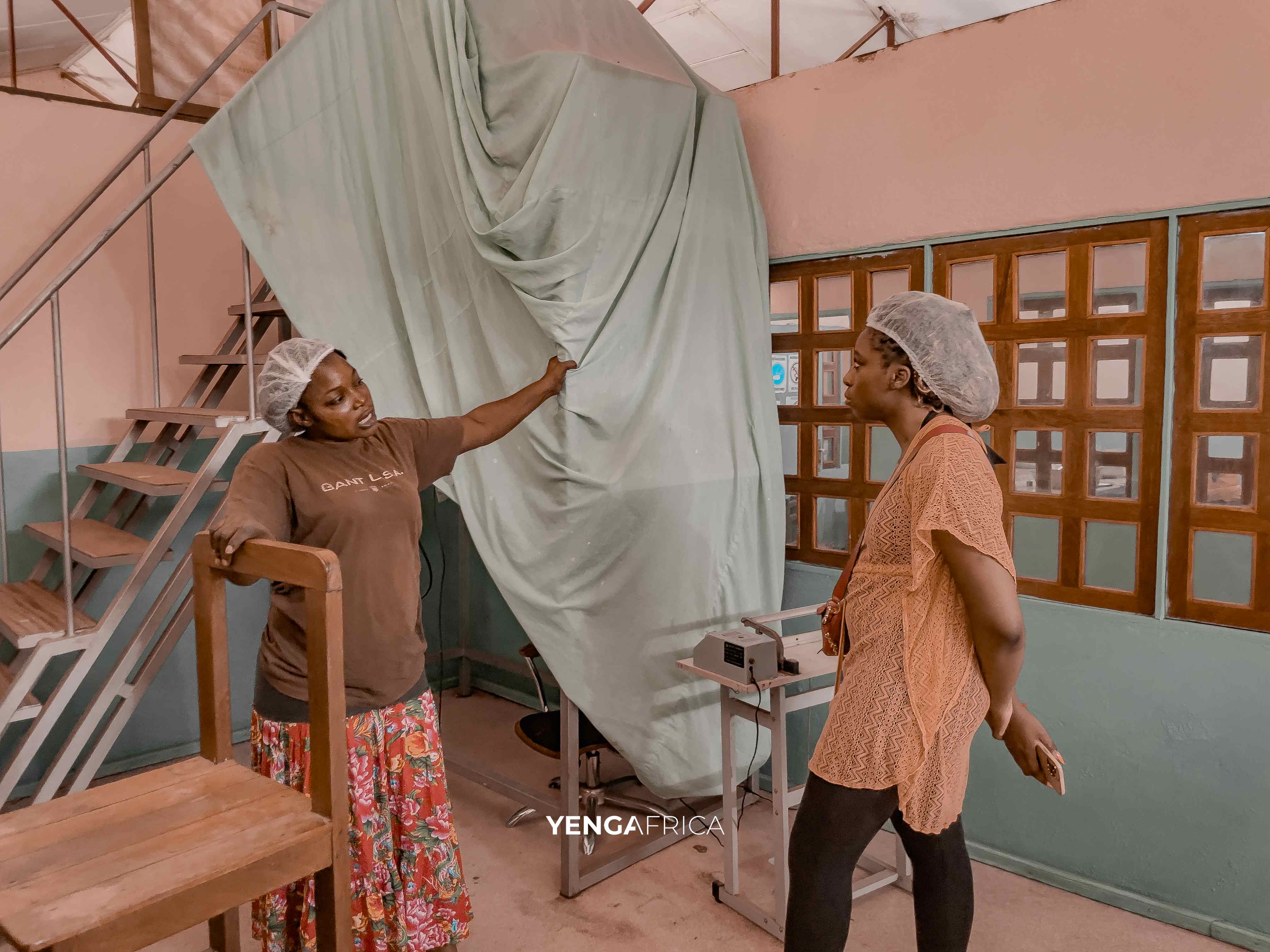
Practical Tips
- What to Wear: Light, breathable clothes and comfortable shoes for walking in the fields. Opt for long trousers and long sleaves to cover your body from mosquitoes.
- Bring: Water, hat, camera, and small cash for local pepper purchases.
- Respect the Farm: Stay on marked paths and ask before taking photos of workers.
- Souvenirs: Don’t miss buying a small jar of white Penja pepper—it’s an authentic taste of Cameroon to bring home or to keep to a friend or family member.
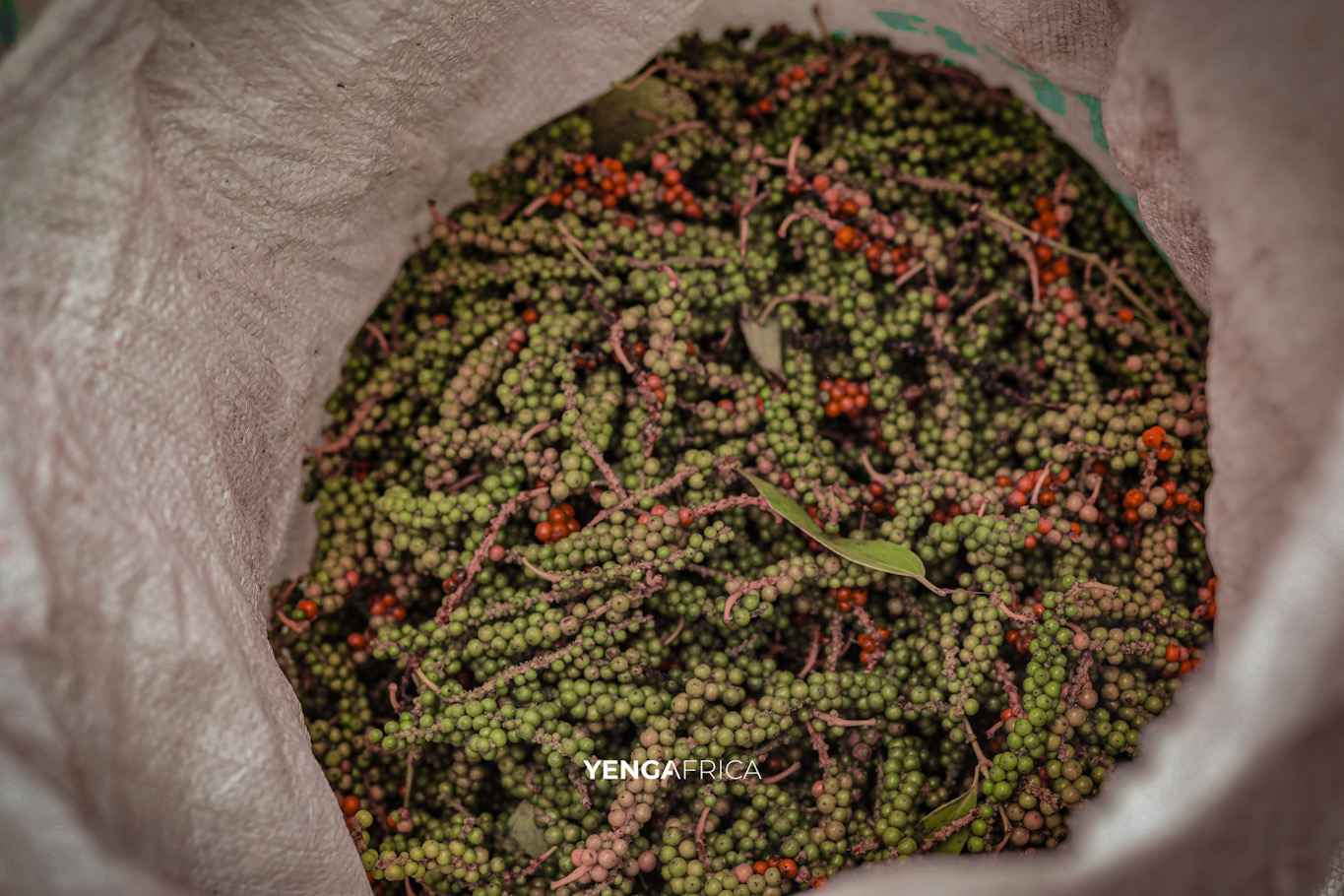
Nearby Attractions
Turn your Penja day trip into a full Moungo adventure:
- Visit the Ekom Nkam Waterfalls, Cameroon’s tallest and most majestic falls
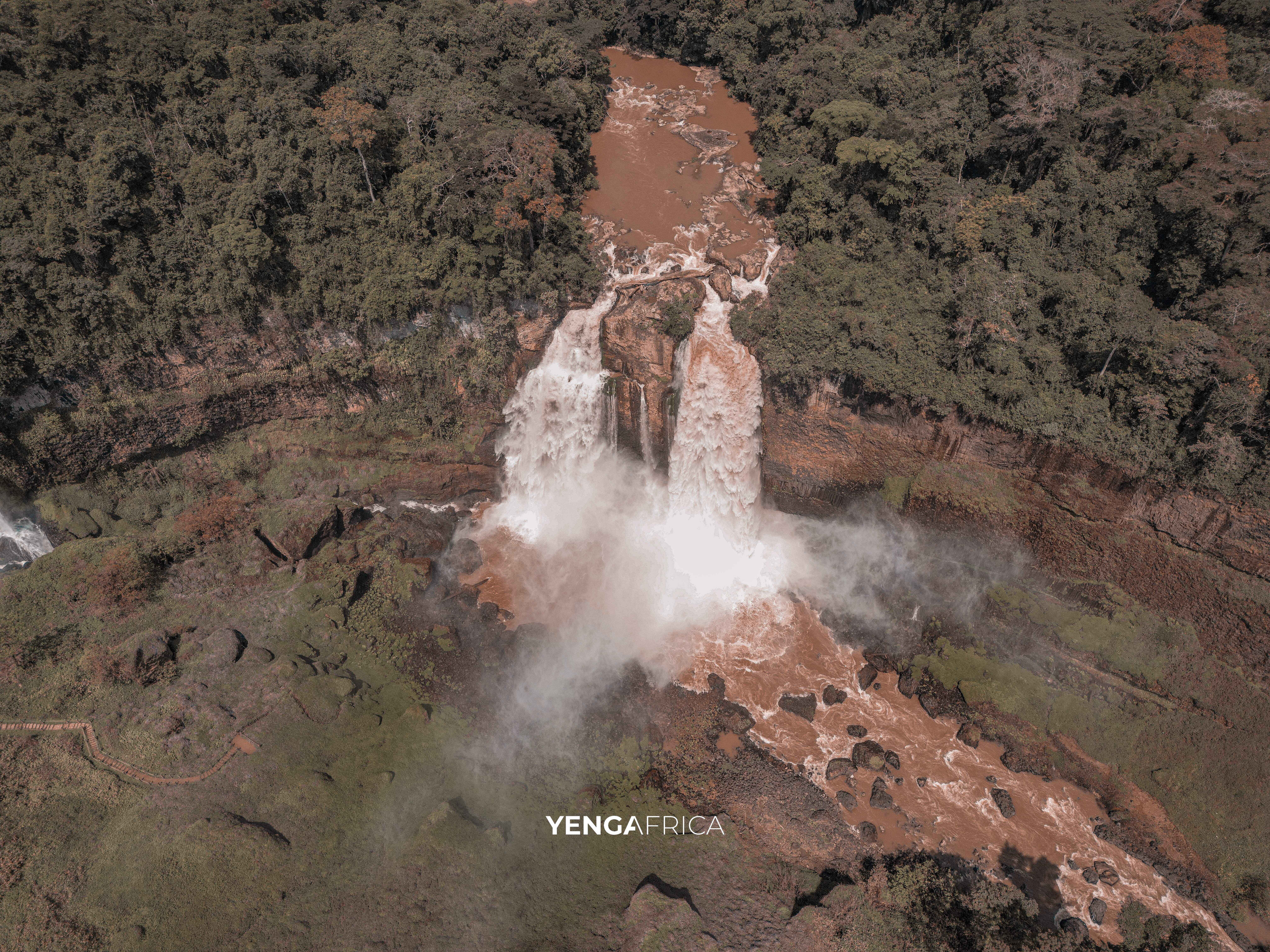
- Explore the Mouankeu Waterfall in nearby Bafang, often called the Mini Ekom Nkam. Best if you are driving towards the West only. Avoid on a round trip to Douala, the distance is really long.
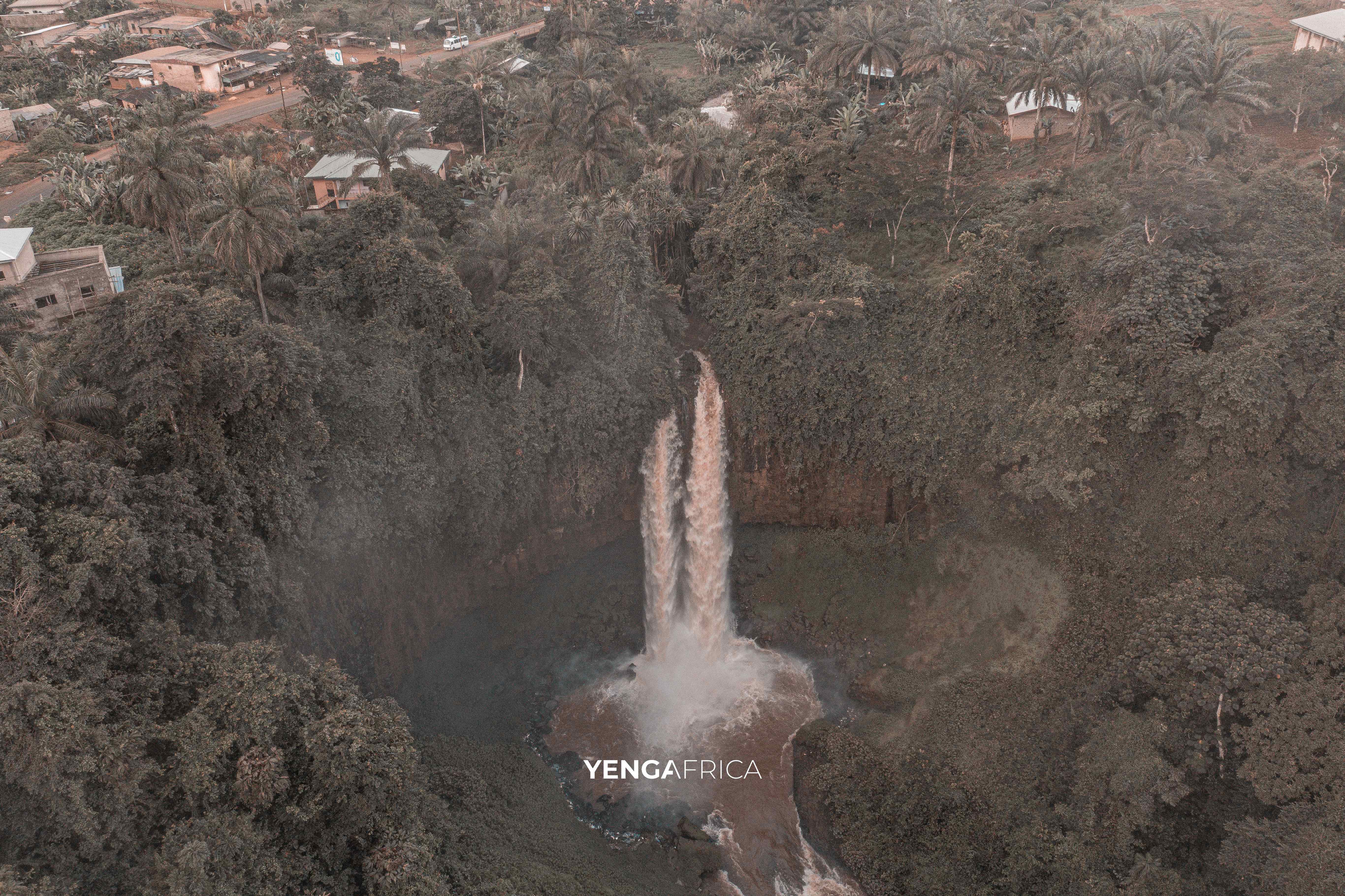
- Ngwa Waterfalls near Nkongsamba, also known as Kone falls. It is located just before the city of nkongsamba, in a small village called Ngwa.
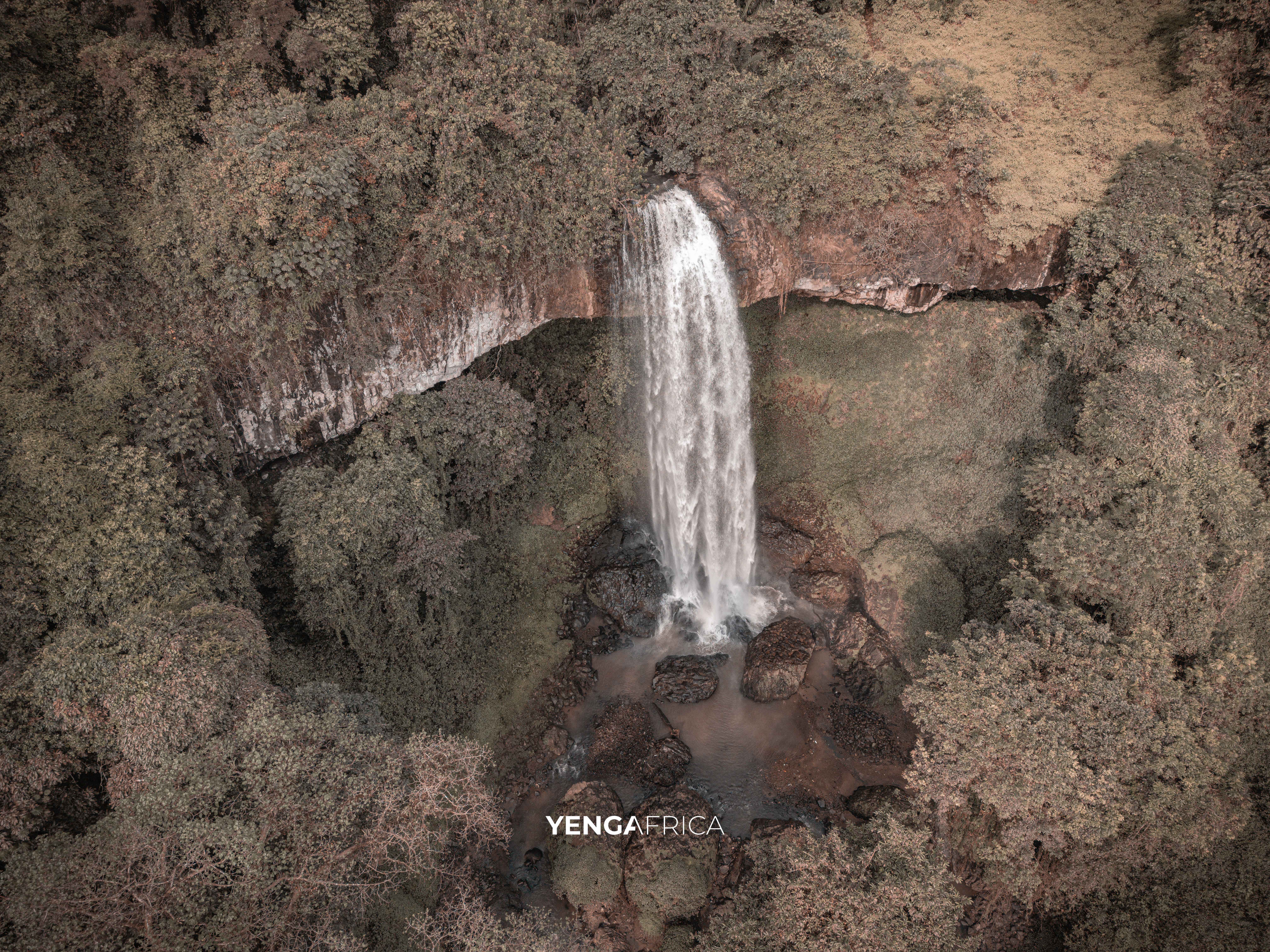
- Dibombe waterfalls in Manjo, located behind the Catholic Mission of Manjo, about 150 meters from the main Douala–Nkongsamba highway.
- For those craving more nature and hiking, continue toward Melong for Manengouba Crater Lakes, a unique camping experiences to explore one of the natural wonders of Cameroon.
Conclusion
The Poivre de Penja is more than just a spice—it’s a symbol of Cameroon’s agricultural excellence and resilience.
Visiting the Penja pepper plantation offers a rare opportunity to connect with the land, meet passionate farmers, and understand how this humble seed conquered the culinary world.
About YENGAFRICA
YENGAFRICA is Cameroon’s first tourism marketplace, offering over 300+ unique activities and experiences across the country. Whether you want to book adventures online or create a custom itinerary, our team ensures every trip is safe, authentic, and memorable.
📲 Follow our WhatsApp Channel & 🔔 activate notifications for travel tips, discounts, and updates.
Connect with us 📷 Instagram | 🎥 TikTok | ▶️ YouTube | 💼 LinkedIn
